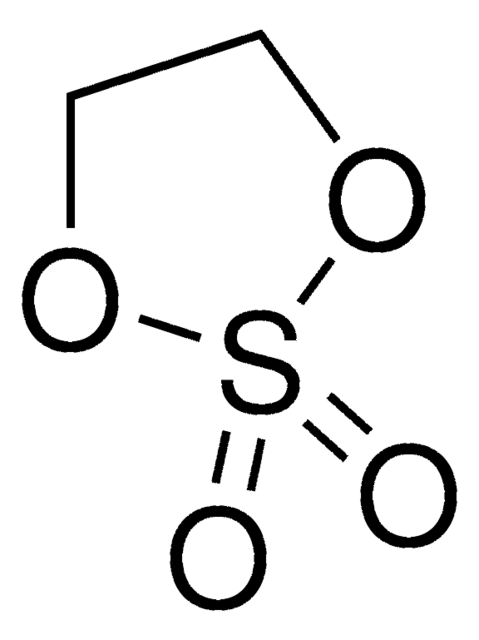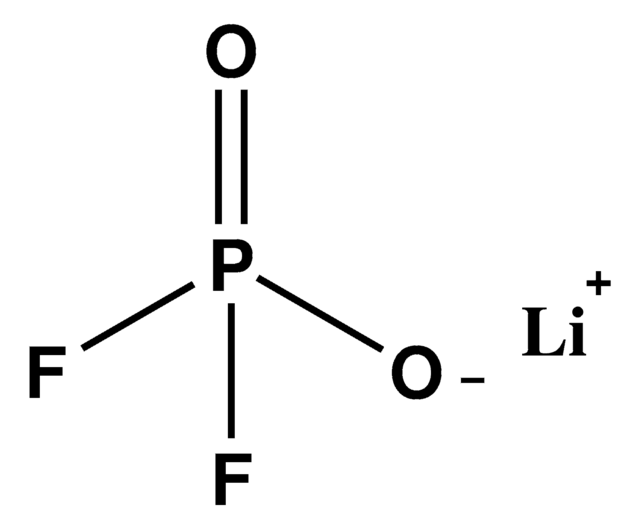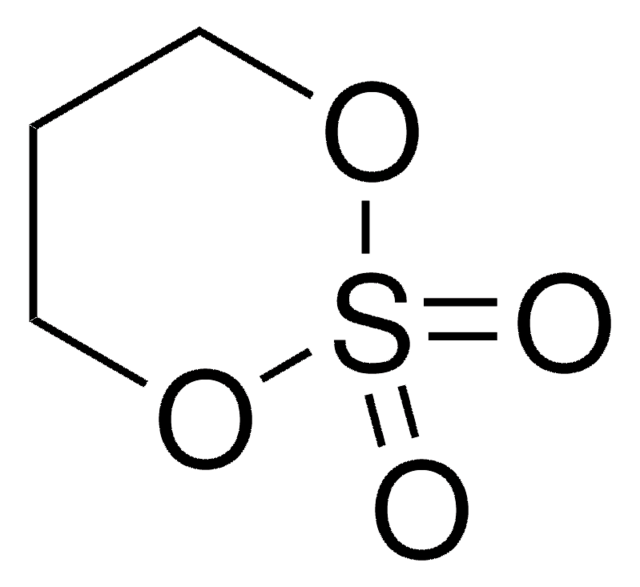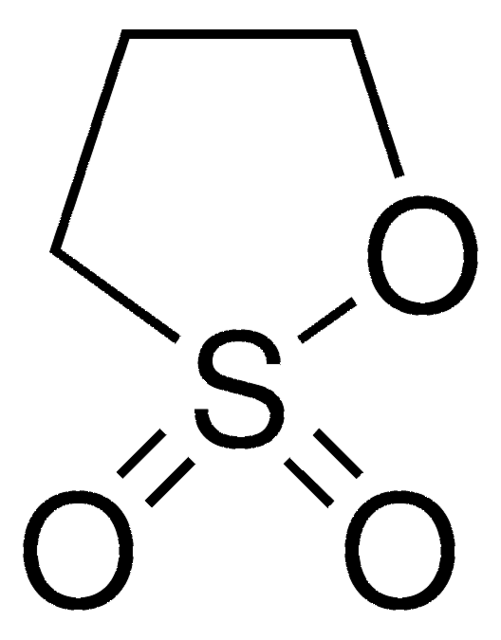935646
Ethylene sulfate

≥99%, anhydrous, battery grade
Sinónimos:
1,3,2-Dioxathiolane 2,2-dioxide, DTD
About This Item
Productos recomendados
grade
anhydrous
battery grade
Quality Level
assay
≥99%
form
powder
greener alternative product characteristics
Design for Energy Efficiency
Learn more about the Principles of Green Chemistry.
sustainability
Greener Alternative Product
impurities
≤750 ppm (H2O)
bp
231 °C
mp
95-97 °C (lit.)
application(s)
battery manufacturing
greener alternative category
storage temp.
2-8°C
SMILES string
O=S1(=O)OCCO1
InChI
1S/C2H4O4S/c3-7(4)5-1-2-6-7/h1-2H2
InChI key
ZPFAVCIQZKRBGF-UHFFFAOYSA-N
¿Está buscando productos similares? Visita Guía de comparación de productos
General description
Application
related product
signalword
Danger
hcodes
Hazard Classifications
Acute Tox. 4 Oral - Carc. 2 - Eye Dam. 1 - Skin Corr. 1B - Skin Sens. 1B
Storage Class
8A - Combustible corrosive hazardous materials
wgk_germany
WGK 3
flash_point_f
Not applicable
flash_point_c
Not applicable
Certificados de análisis (COA)
Busque Certificados de análisis (COA) introduciendo el número de lote del producto. Los números de lote se encuentran en la etiqueta del producto después de las palabras «Lot» o «Batch»
¿Ya tiene este producto?
Encuentre la documentación para los productos que ha comprado recientemente en la Biblioteca de documentos.
Nuestro equipo de científicos tiene experiencia en todas las áreas de investigación: Ciencias de la vida, Ciencia de los materiales, Síntesis química, Cromatografía, Analítica y muchas otras.
Póngase en contacto con el Servicio técnico










